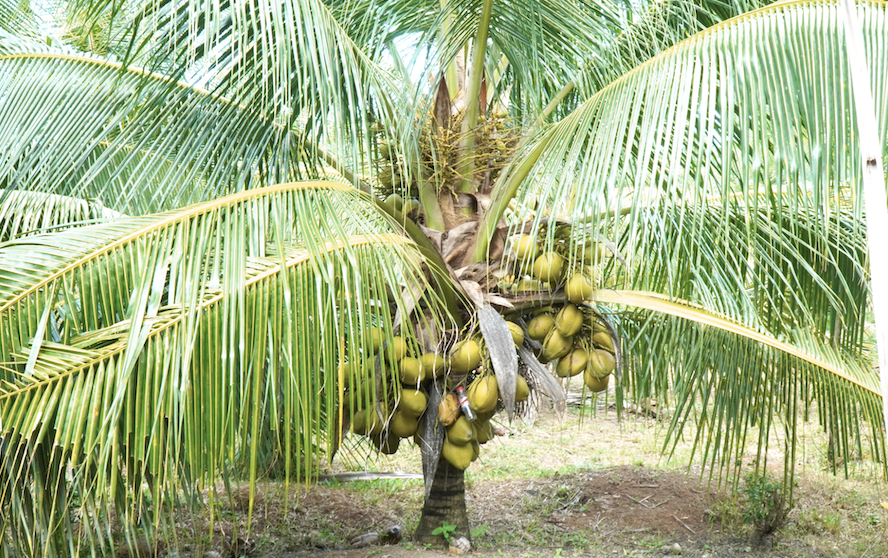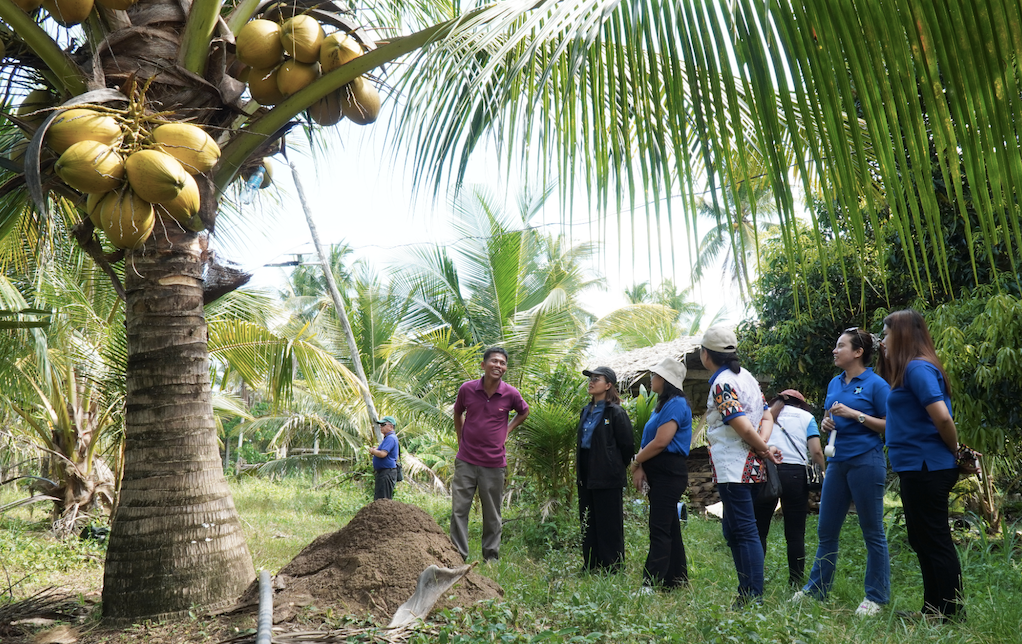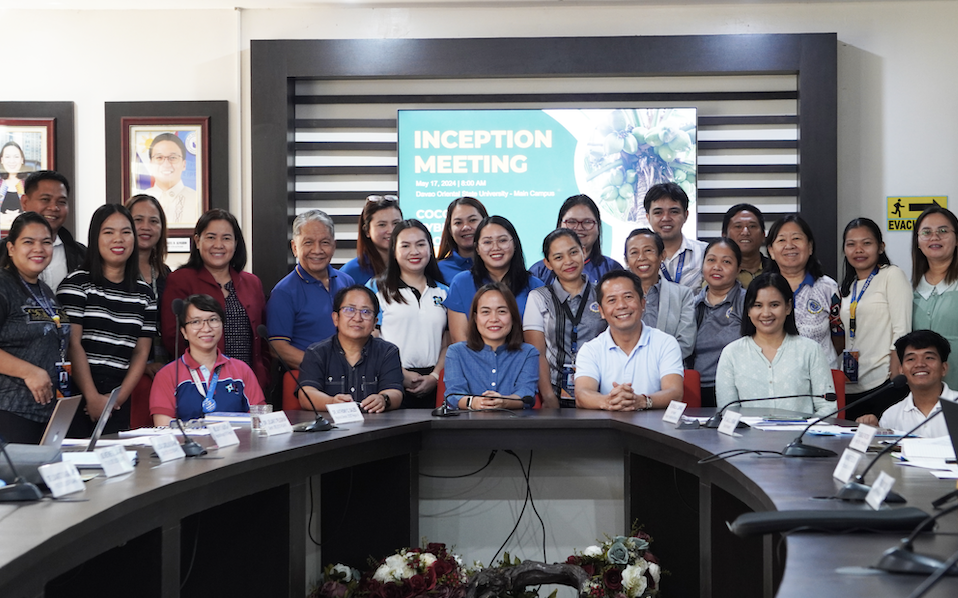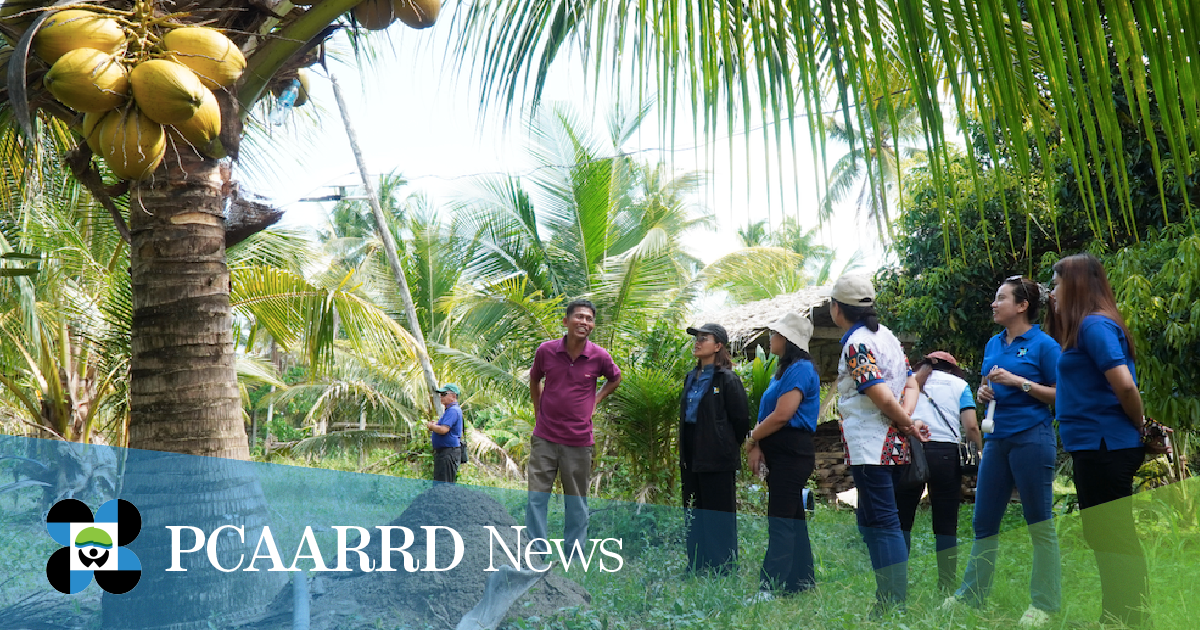
A five-year-old PCA 15-2 (MRD x TAGT) hybrid coconut planted in Banaybanay, Davao Oriental. (Image credit: CRD, DOST-PCAARRD)
A research project recently commenced to further optimize Davao Oriental’s hybrid production towards productive and sustainable coconut farming.
Currently, there are no available recommendations for high yielding coconut hybrid varieties that are widely adaptable to the agroecological conditions of the province.
To address this gap, Davao Oriental State University (DOrSU) will implement the project, “Coconut Hybrid Utilization in the Locality for Improved Productivity (Coco-HULIP) in Davao Oriental,” under the leadership of Ms. Erna S. Macusi. The project will assess the adaptability and evaluate the productivity and efficiency of coconut hybrids towards sustainable coconut farming in the province.
Named after the Cebuano term ‘hulip,’ which means to replace, the three-year project also aims to promote the adoption of coconut hybrids to replace senile and typhoon-damaged coconut palms.

Crops Research Division (CRD) team visits one of the sites of the project, “Coconut Hybrid Utilization in the Locality for Improved Productivity (Coco-HULIP) in Davao Oriental.” (Image credit: CRD, DOST-PCAARRD)
The Philippine Council for Agriculture, Aquatic and Natural Resources Research and Development of the Department of Science and Technology (DOST-PCAARRD) funds the project through the Coconut Farmers and Industry Development Plan (CFIDP) Coconut Hybridization Program (CHP) Research.
According to Ms. Macusi, local and small-scale coconut farmers will benefit from the project by receiving training on coconut hybrid production and seedlings of hybrid varieties as incentives.
The DOrSU project team will also establish coconut hybrid adaptability trial sites and produce reports on technical efficiency scores, productivity index, and factors affecting the efficiency of coconut hybrid production in the province.

Attendees of the inception meeting of the project, “Coconut Hybrid Utilization in the Locality for Improved Productivity (Coco-HULIP) in Davao Oriental.” (Image credit: CRD, DOST-PCAARRD)
During the inception meeting, DOrSU Vice President for Research, Innovation, and Extension Misael B. Clapano affirmed that the project demonstrates the university's active engagement in research initiatives that will increase coconut farmers’ income, boost Davao Oriental’s local economy, and achieve the country’s Sustainable Development Goals (SDGs) such as no poverty, zero hunger, and sustainable cities and communities.
DOST Region XI representative Sharon B. Mendoza-Alegado and Philippine Coconut Authority (PCA) Region XI Regional Manager Juvy T. Alayon also expressed their willingness to collaborate with the DOrSU team toward achieving the project’s objectives.
The meeting was led by CRD Director Leilani D. Pelegrina, Industry Strategic S&T Program (ISP) Manager for Coconut Alissa Carol M. Ibarra, and other key staff.
Following this, the DOST-PCAARRD team visited one of the project sites planted with PCA 15-2 hybrid (Malayan Red Dwarf x Tagnanan Tall) in Banaybanay, Davao Oriental.

